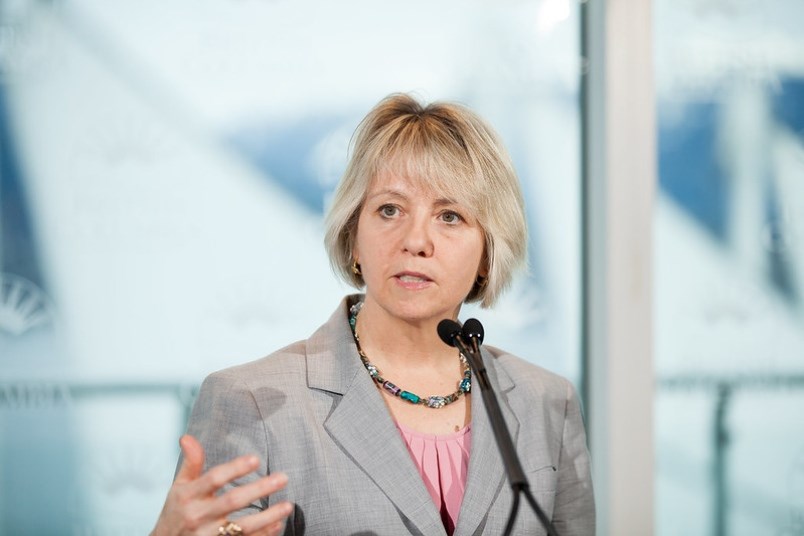There are now 73 cases of the coronavirus in B.C., after health officials announced 9 new cases Saturday.
Of the new cases, 7 are in the Vancouver Coastal Health (VCH) region, said provincial health officer Dr. Bonnie Henry, while one is in the Fraser Health region and one in the Interior Health region.
The Interior Health case is linked to travel in "a number of places" in Europe, said Henry, most recently PortugalA number of Saturday's new cases are linked to the Lynn Valley Care Centre in North Vancouver. There are now four residents and 12 staff members who have tested positive for the coronavirus since an outbreak was first reported at the care home.
"This is not a surprise," said Henry. "There may be more cases that arise (there) in the coming days."
Health Minister Adrian Dix said the province is "extremely concerned" about the outbreak at the Lynn Valley Care Centre, and reminded people to not visit care homes or elderly people if they are sick.
Henry also clarified the number of cases linked to Hollyburn House in West Vancouver: one resident and one staff member of the care home have tested positive.
Previously, Henry had said two staff members at Hollyburn House had tested positive, but one of them is actually an employee at the Lynn Valley Care Centre.
Another two of the previously-announced VCH cases, said Henry, actually live in the Northern Health region.
They drove themselves home "under strict protocols," she said, where they are now in isolation with mild symptoms.
There are now cases of COVID-19 in all of B.C.'s five health authority regions.
B.C. adapting testing strategy, discourages panic buying
Henry also dissuaded British Columbians from "anxiety-provoked purchasing," which has been seen at a number of stores across the Lower Mainland and Canada in recent days.
"I think it's natural when you're in a situation like this," said Henry, "where there's a lot of unknowns, and there's a lot of concern about what's happening with this virus and the impact it's going to have on us and our families.
"And one of the ways people do try and get some control over their environment is to make sure they're stocking up on things."
Both Henry and Dix said that the supply chains are strong, and retailers are restocking shelves.
Instead, Henry encouraged people to go outdoors.
"I encourage everybody to take the time now, to spend the time with their families, to go outdoors, to take advantage of the time and the space that we have, but to do it together in small groups," she said.
"We will get through this. But it's going to be a challenging time for all of us."
The province will be also changing its testing strategy, said Henry, to focus on testing people in active health investigations, cluster outbreaks, health care workers and people in hospital, which is how health officials can determine how the virus spreads in the community.
“We don’t need to test people who have very mild illness and are isolating from others,” she said. “That allows us to prioritize the cases where we see transmission.”
People who may have travelled but are asymptomatic also don't need to be tested, said Henry, but do need to self-isolate for 14 days.
Dix said that there will also be new testing centres opening up in the coming days. The locations for those centres haven't yet been announced.
Read more from the Richmond News



